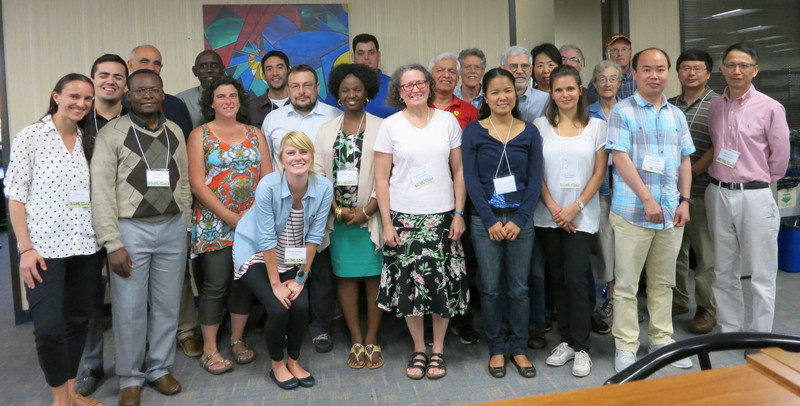Mathematics inspired by immuno-epidemiology
August 24 to August 28, 2015
at the
American Institute of Mathematics,
San Jose, California
organized by
Maria Vittoria Barbarossa,
Rongsong Liu,
and Gergely Roest
Original Announcement
This workshop aims to link the separate fields of
mathematical immunology and mathematical epidemiology, to connect them into what
shall become mathematical immuno-epidemiology.
Immuno-epidemiology is a quite recent field which combines individual- and
population-oriented approaches to create new perspectives. Its main goal is to
study the influence of the immune status of single hosts on epidemiological
patterns.
As it happens for other life sciences, mathematics can be an important tool for
immuno-epidemiological research. The overall aim of the workshop is to provide a
realistic mathematical description of how the fields of immunology and
epidemiology are correlated.
The main topics for the workshop are:
- Identifying key questions in immuno-epidemiology and translating them
into mathematics.
- Establishing proper modeling approaches to be used in
immuno-epidemiology. Systems of ordinary differential equations (ODEs), partial
differential equations (PDEs) or combinations of both (hybrid systems) have been
considered so far. In few cases, delay differential equations (DDEs) or
multi-scale models have been proposed.
- Recognizing the mathematical challenge arising from proposed
mathematical models (e.g., with state-dependent delay or infinite delay),
specifying theoretical questions to be addressed.
- Providing stable numerical tools and reliable methods for parameter
estimation to have comparison with experimental data and to provide accurate
predictions.
Material from the workshop
A list of participants.
The workshop schedule.
A report on the workshop activities.
Papers arising from the workshop:
How ticks keep ticking in the adversity of host immune reactions
by Rachel Jennings, Yang Kuang, Horst R. Thieme, Jianhong Wu and Xiaotian Wu

